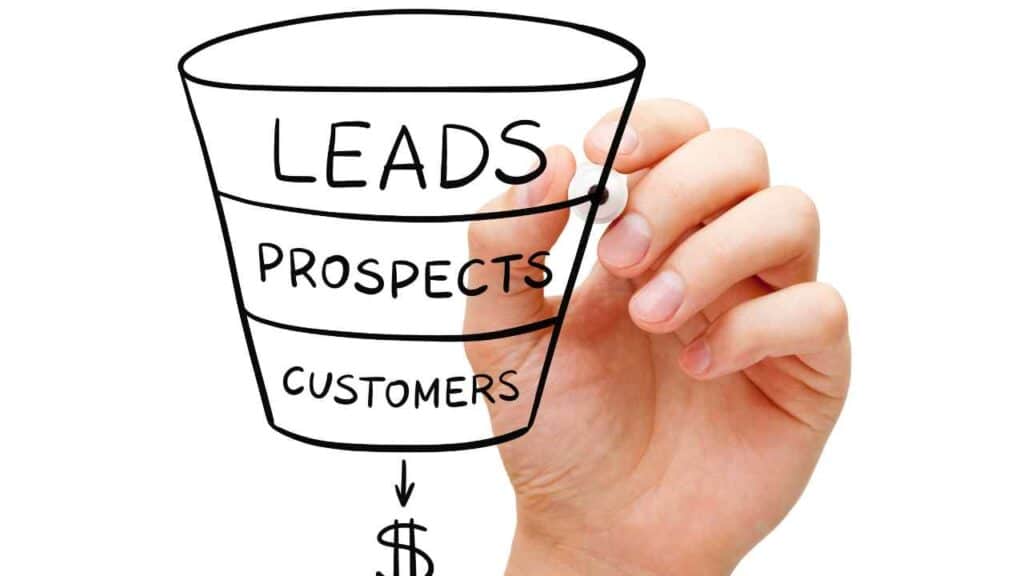CRM Tools for Tracking Customer Behaviour

Customer Relationship Management (CRM) tools have become an essential part of modern business operations. These tools not only help businesses manage their customer interactions but also provide valuable insights into customer behavior. By tracking customer behavior, businesses can gain a deeper understanding of their customers’ needs, preferences, and buying patterns. This information can then be used to tailor marketing strategies, improve customer service, and drive business growth. In this article, we will explore the importance of CRM tools for tracking customer behavior and discuss some popular CRM tools that can help businesses in this endeavor.
The Importance of Tracking Customer Behavior
Understanding customer behavior is crucial for businesses looking to stay competitive in today’s market. By tracking customer behavior, businesses can:
- Gain insights into customer preferences and needs
- Identify patterns and trends in customer buying behavior
- Personalize marketing campaigns and offers
- Improve customer service and support
- Identify opportunities for cross-selling and upselling
- Measure the effectiveness of marketing campaigns
By leveraging CRM tools to track customer behavior, businesses can make data-driven decisions and optimize their strategies to better serve their customers.
Popular CRM Tools for Tracking Customer Behavior
There are numerous CRM tools available in the market that can help businesses track customer behavior effectively. Let’s take a look at some popular CRM tools:
1. Salesforce CRM
Salesforce CRM is one of the most widely used CRM tools in the market. It offers a range of features and functionalities that enable businesses to track and analyze customer behavior. With Salesforce CRM, businesses can:
- Track customer interactions across multiple channels
- Segment customers based on their behavior and preferences
- Create personalized marketing campaigns
- Monitor customer satisfaction and loyalty
- Generate detailed reports and analytics
Salesforce CRM provides businesses with a comprehensive solution for tracking and managing customer behavior.
2. HubSpot CRM
HubSpot CRM is another popular CRM tool that offers robust features for tracking customer behavior. With HubSpot CRM, businesses can:
- Track customer interactions and engagements
- Automate lead nurturing and follow-ups
- Segment customers based on their behavior and interests
- Personalize marketing campaigns and content
- Measure the effectiveness of marketing efforts
HubSpot CRM provides businesses with a user-friendly interface and a range of tools to effectively track and analyze customer behavior.
3. Zoho CRM
Zoho CRM is a comprehensive CRM tool that offers a wide range of features for tracking customer behavior. With Zoho CRM, businesses can:
- Track customer interactions across multiple channels
- Segment customers based on their behavior and demographics
- Automate lead management and follow-ups
- Personalize marketing campaigns and offers
- Generate detailed reports and analytics
Zoho CRM provides businesses with a powerful platform to track and analyze customer behavior and drive business growth.
Case Studies: How CRM Tools Helped Businesses Track Customer Behavior
Let’s take a look at some real-life case studies that demonstrate how CRM tools have helped businesses track customer behavior and achieve success:
Case Study 1: Company XYZ
Company XYZ, a leading e-commerce retailer, implemented Salesforce CRM to track customer behavior. By analyzing customer data, they discovered that a significant portion of their customers abandoned their shopping carts before completing the purchase. Armed with this information, Company XYZ implemented targeted email campaigns to remind customers about their abandoned carts and offer personalized discounts. As a result, their cart abandonment rate decreased by 20%, leading to a significant increase in sales.
Case Study 2: Company ABC
Company ABC, a software-as-a-service (SaaS) provider, used HubSpot CRM to track customer behavior and improve their onboarding process. By analyzing customer interactions and feedback, they identified areas where customers were facing challenges during the onboarding process. Company ABC then made necessary improvements to their onboarding process and provided personalized support to customers. This resulted in a 30% increase in customer satisfaction and a decrease in churn rate.
CRM tools play a vital role in tracking customer behavior and helping businesses make data-driven decisions. By leveraging CRM tools, businesses can gain insights into customer preferences, identify patterns in buying behavior, personalize marketing campaigns, improve customer service, and drive business growth. Popular CRM tools like Salesforce CRM, HubSpot CRM, and Zoho CRM offer a range of features and functionalities to effectively track and analyze customer behavior. Real-life case studies demonstrate how businesses have successfully utilized CRM tools to track customer behavior and achieve significant results. To take advantage of the benefits offered by CRM tools, businesses should consider implementing a CRM solution like SaasExpert.ca – Your All-In-One Sales and Marketing Platform for small businesses, agency owners, and marketers.
Remember, understanding customer behavior is the key to success in today’s competitive market. By investing in CRM tools and leveraging customer data, businesses can stay ahead of the curve and deliver exceptional customer experiences.
Learn more about “Analyzing Customer Habits via CRM” right here.
Frequently asked questions about CRM Tools for Tracking Customer Behaviour

1. Why is tracking customer behavior essential for businesses using CRM tools? 🤔
Answer: Tracking customer behavior is the backbone of any successful CRM strategy! 💼 By understanding your customers’ actions, preferences, and pain points, businesses can tailor their offerings and communication to match their audience’s needs. CRM tools allow businesses to gather insightful data 📊, which helps in predicting future buying behaviors, segmenting customers more effectively, and enhancing the overall customer experience. In essence, it’s all about being proactive and not reactive, ensuring your business stays one step ahead and remains relevant in your customers’ eyes. 👀✨
2. What features should I look for in a CRM tool to effectively track customer behavior? 🧐
Answer: Great question! A robust CRM tool should have the following features for efficient customer behavior tracking:
Engagement Analytics: To monitor interactions such as email opens, click-through rates, and social media engagement. 📧📈
Purchase History Analysis: So you can recognize buying patterns and trends over time. 🛍️💰
Web Tracking: To understand how customers navigate your website and which pages capture their attention. 🌐🔍
Segmentation Tools: For categorizing customers based on behavior, preferences, or demographics. 🏷️👥
Feedback Mechanisms: To gather direct input from your customers about their experiences and preferences. 🎤📝
Remember, the tool should be intuitive and customizable, ensuring it aligns with your business’s unique needs and goals. 🎯
3. How can CRM tools help in personalizing my marketing campaigns based on customer behavior? 💌
Answer: CRM tools are like magic wands for marketers! 🪄✨ By utilizing the behavioral data stored in your CRM, you can create hyper-personalized campaigns that resonate deeply with your audience. For instance, if a segment of your customers frequently buys eco-friendly products, you can target them with green initiatives or promotions. 🌱 Similarly, if a customer often abandons their cart, CRM can trigger a reminder email with a special offer to nudge them towards completing the purchase. 🛒💸 It’s all about understanding and catering to individual preferences, making your marketing campaigns more impactful and relevant. 🎉
4. Are there any privacy concerns when tracking customer behavior with CRM tools? 🛡️
Answer: Absolutely, privacy is paramount! 🔐 With increasing global emphasis on data protection (like GDPR in Europe), it’s vital to ensure that your CRM tool complies with all legal requirements. Always ensure:
Consent: Always seek permission before collecting and storing customer data. ✅
Transparency: Inform customers about the data you’re collecting and its purpose. 📜
Security: Ensure your CRM tool has robust encryption and security protocols. 🔒
Data Minimization: Only collect data that’s necessary for your operations. 🚫📦
By being transparent and respectful of customer data, you not only stay compliant but also build trust with your audience. 💪❤️
5. How often should I review and act on the insights from tracking customer behavior in my CRM tool? 🔄
Answer: Regularly reviewing insights is key to staying agile and responsive! 🚀 Typically, monthly reviews are a good starting point. However, during product launches, marketing campaigns, or peak seasons, it might be beneficial to analyze data more frequently, even weekly. 📅🔍 Remember, the CRM tool provides a goldmine of information; acting on these insights timely can lead to improved customer satisfaction, increased sales, and stronger brand loyalty. 💖💰






